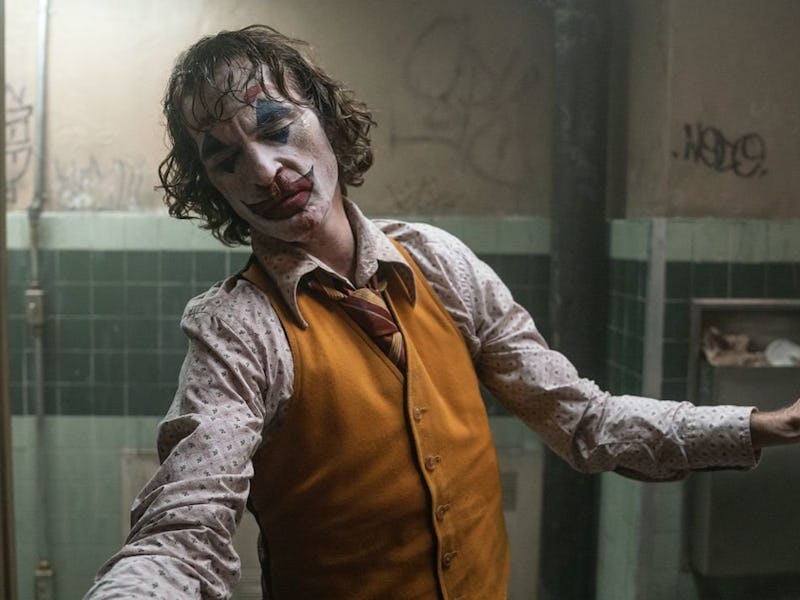Joker theory reveals the massive significance of an overlooked detail
Arthur Fleck's diary contains much more than just bad jokes.

Joker, the Oscar-winning smash hit from Todd Phillips, seems to have come out a lifetime ago, as the fandom moves on to a new gritty take on the Batman story. But there's still a lot to unpack in this almost year-old film, and viewers continue to find new meaning in Arthur Fleck's downward spiral. A compelling fan theory drills into a single frame of the movie, using psychological techniques to expose his inner tragedy.
Arthur's mental journey throughout the film is somewhat of a mystery, though it's obvious he's not well. We see this when he writes an idea for a joke in his journal. The jokes start out quite feasible ("why are poor people confused? Because they don't make any cents") and derail into the scrawled phrase "the worst part about having a mental illness is people expect you to behave as if you don't."
Arthur Fleck's journal.
This diary page seems to be split up into five parts, three jokes and the two parts of the final phrase. Eagle-eyed redditor Deja_Subho noticed each of those five parts seemed to correspond with one of the most well know psychological processes: the five stages of the Kübler-Ross grief model.
The Kübler-Ross model was developed by psychiatrist Elisabeth Kübler-Ross after working with terminally ill patients as a way to denote the complex process of grief. These five stages, denial, anger, bargaining, depression, and acceptance, are supposedly the universal process for grief.
However, these stages aren't just experienced with the death of a loved one. They can be applied to any sort of loss, be it personal, financial, or possibly, in Arthur's case, the loss of sanity. Check out the theory below.
Now, there are some issues with this theory. For example, the first joke reads "Why did the old man like having insomneea? (sic) Because he didn't have to sleep with his wife." The theory interprets this as a cry for help and evidence that Arthur's avoiding reality, but the justification isn't totally clear. Still, the insomina joke relates to denial, and could imply Arthur sees himself still able to fall in love and get married.
Each of these aspects not only applies to the stages of grief, but the themes explored in the film as well. There are jokes about love, poverty, and mental illness, all of which Arthur struggles with.
In a way, this diary page is like a microcosm of the film. It documents Arthur's own grief with losing his grip on reality, his own sanity, and the dream of a normal life, only for it to be replaced with the dream that results in the bloody ending. It also documents the topics that have been on his mind, his longing for companionship that drives him to creating a companion out of sheer delusion, the wealth inequality he sees around him on a day to day basis, and his struggles finding mental health assistance.
While the stages of grief may not be obvious throughout the film, it's another window into Arthur Fleck's complicated and fascinating psychology.